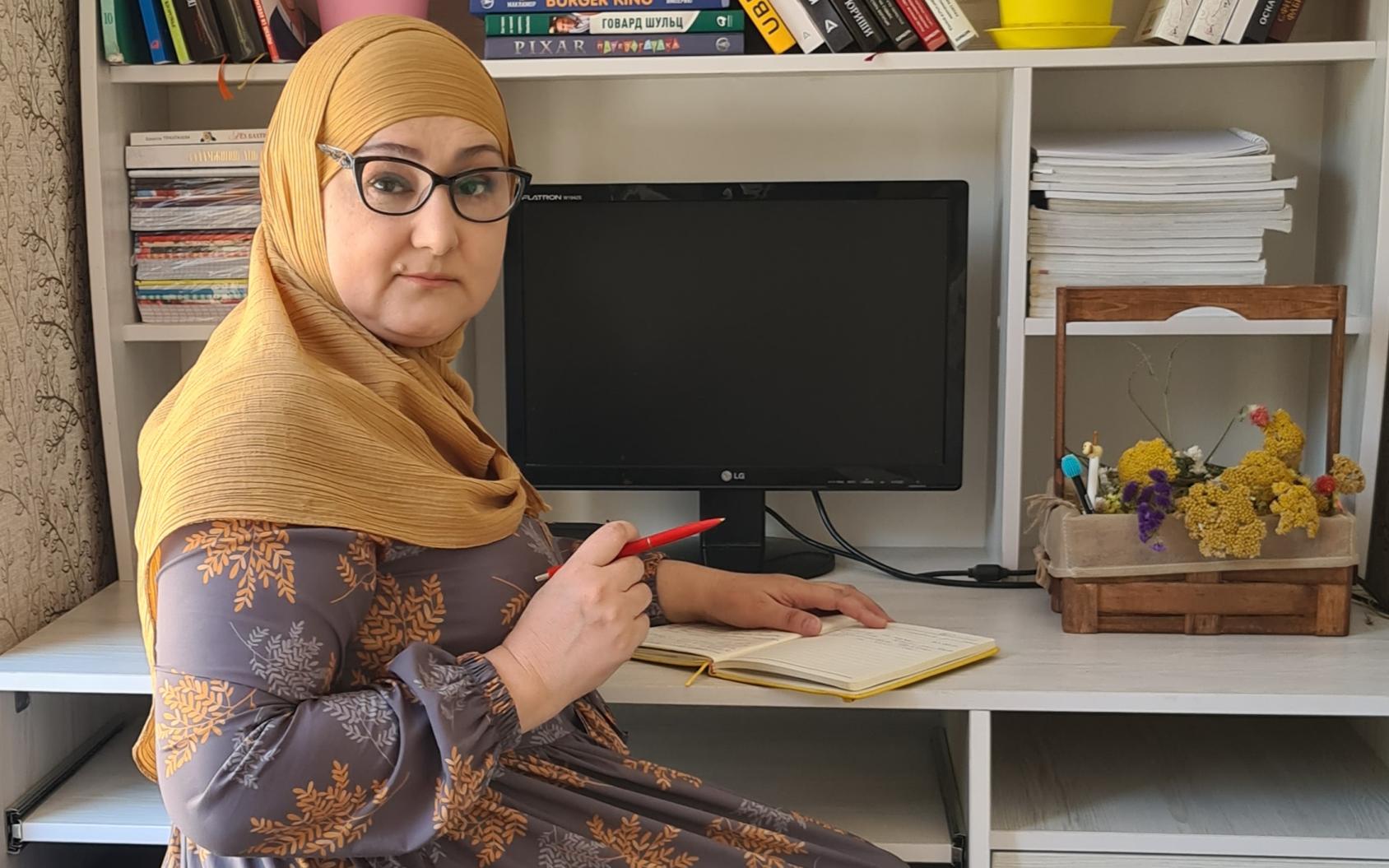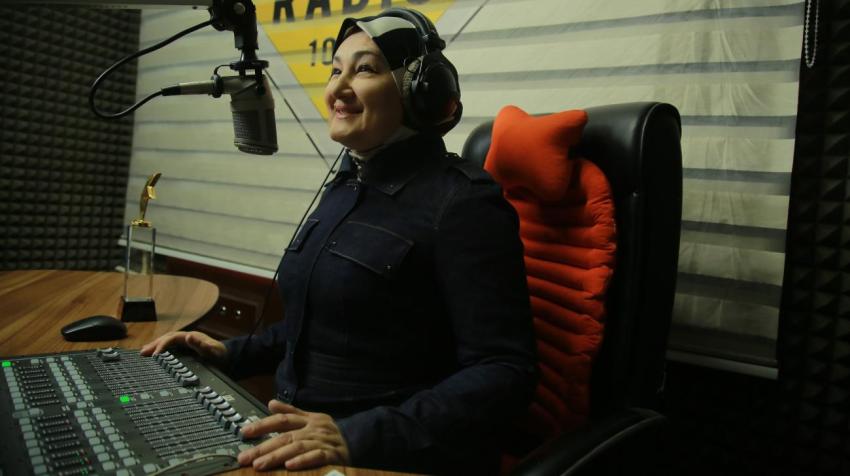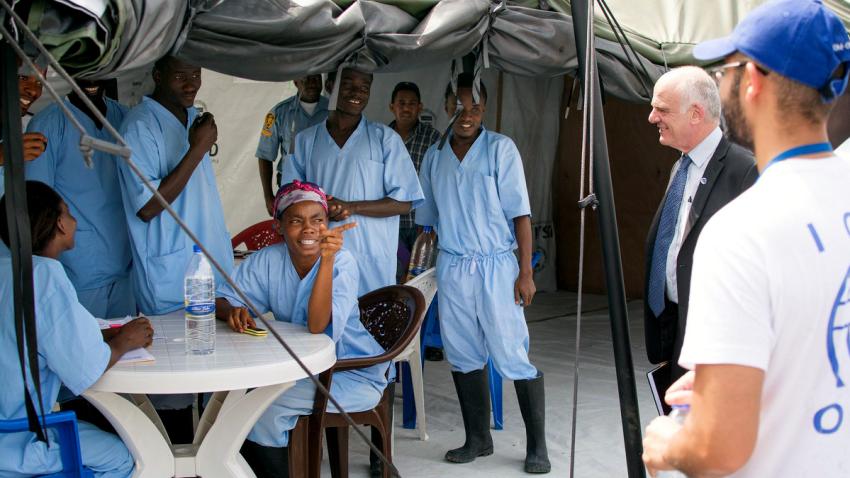The pandemic has put many people to the test, and journalists are no exception. Coronavirus has waged war not only against people's lives and well-being but has also spawned countless hoaxes and scientific falsehoods. Across the globe, journalists have had to make sure the reports they share are factually correct. To Nazira Inoyatova, radio host and creative and programme director at Avtoradio FM 102.0, Tashkent’s private radio station, the pandemic proved to be a test on many levels: her devotion to her life’s work and her readiness to adapt to new working conditions.
"It was just an ordinary Monday morning,” Nazira recalls of the day in March 2020 when Uzbekistan’s government announced a quarantine to contain the spread of coronavirus. “Everyone already had their week planned and many were looking forward to the Navruz celebrations (the national holiday to mark the arrival of spring). But everything changed, suddenly, the reality was different."
According to Nazira, in the first few days after the announcement, most private radio stations in Tashkent and the majority of 20 regional radio stations were broadcasting only music 24/7. But, unlike others, Avtoradio FM 102.0 didn’t stop live broadcasting and kept on airing daily news updates.
"At our radio station, we have news programming scheduled eight times per day. Usually we used to fact-check two or three sources, but now we try to verify the information sources six to eight times," says Nazira.
Nazira is one of several hundred journalists in Uzbekistan who have participated in a UNESCO series of fact-checking trainings. Other UN agencies have trained journalists and bloggers on various topics, including: UNFPA on coverage of gender equality, UNDP on the courts and covering trials, UNICEF and the Ministry of Health on debunking COVID-19 myths, and WHO on COVID-19 outreach.
The skills, knowledge and methodology that Nazira learned at the training have helped her and colleagues to deal with the influx of unreliable information.
Because of the overwhelming flow of COVID-related hoaxes and misinformation, many media outlets in Uzbekistan began to pay more attention to coronavirus and health-related issues.
"We decided to increase the number of news updates so we could bust the myths that were popping up one after another back then. For example, we were asked, 'Is it true that garlic and radishes help against COVID-19?’ My colleagues and I had to educate people, urging them to rely only on evidence-based information and proven facts," Nazira says.
Keep your voice down, please! I'm on air
During the period of a strict lockdown, only one radio presenter worked at the station as they lived within walking distance. Everyone else worked from home, including Nazira.
"An hour or so before going on air, I had to ask my family to keep quiet. But there still were times I had to apologize to the listeners for the background noise," she recalls with a smile.
Despite the financial difficulties, none of the employees quit. On the contrary, the team became even more united. The opportunity to focus on work and communicating with the audience prompted them to stay strong amidst the uncertainty.
"We had to adapt to working in a completely new environment very quickly. The living room or bedroom became our new workplace, and even if we weren't in a good mood, we had no right to ‘broadcast’ our bad mood on air," Nazira shares.

Nazira Inoyatova. Photo courtesy Hadicha Abdulhamidova
The radio will live on
As Nazira points out, analog radio, which has been around for more than 80 years, is being supplanted by digital radio. The pandemic has accelerated the process of digitalization. Therefore, the need to look for new ways to engage the audience.
Last year, Avtoradio FM 102.0 launched the programme called “People's Telegram.” During the programme, we receive up to 1-minute-long voice messages from ordinary people who witnessed some events in Tashkent. For some this helps to better navigate the road traffic, to others – to learn what is going on in the city.
"I believe that people trust radio much more than they do television. This is explained by the fact that radio is more mobile, and people are used to hearing the latest information right here and now. It is an interesting shift that people get updates not by listening the news blocks, but to programmes like the People's Telegram. The people inform each other, the only thing is to present it in an interesting way," says Nazira.
The life, the love, and the radio
"Radio is my love, a way to set up a mood. When you turn on the microphone, it seems like you're talking to yourself, when you are in fact communicating your experience to a huge number of people at once. This was a breaking point, and intuitively I realized that I need to dive into work completely,” says Nazira. “And so I did.”




